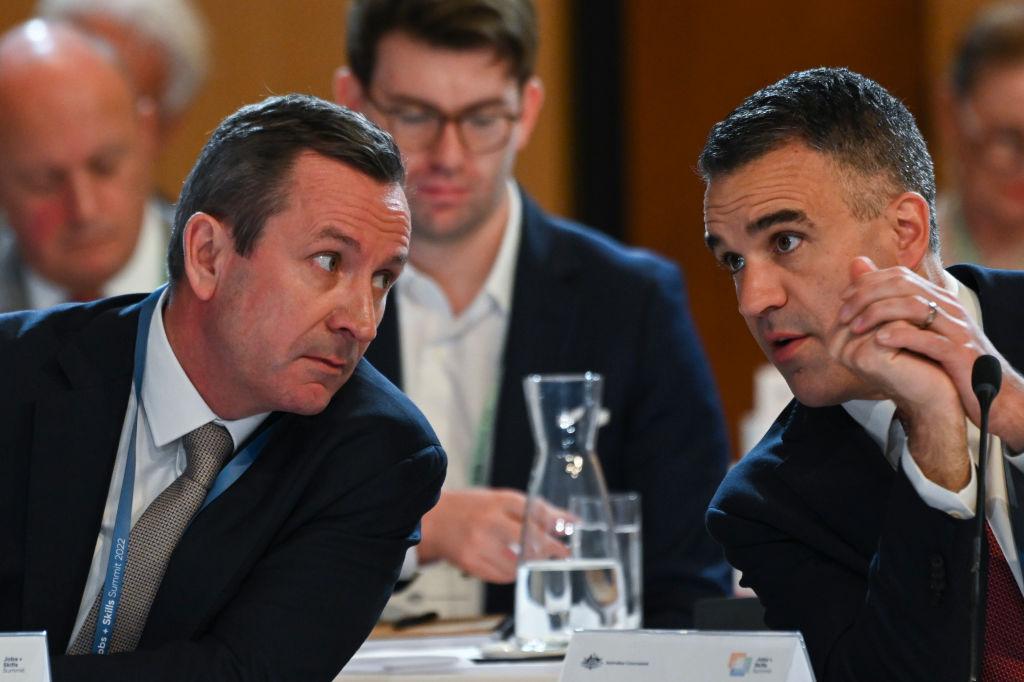
We need to address the elephants in the room. Yes, elephants. There are eight of them—each state and territory, and they are competing at the expense of improving Australia’s innovation economy and strategic objectives.
The defence strategic review (DSR) has highlighted the need for a truly national approach to Australia’s security in the face of deteriorating strategic circumstances. This calls for new approaches, new technologies and new markets for these technologies. Critically, the DSR calls for increased domestic manufacturing, and the capacity to ‘rapidly translate disruptive technologies into ADF capabilities’.
In the period 1995 to 2020, as noted by Harvard University, Australia’s economic complexity ranking declined from 55th in the world to 91st. This decline is important as it illustrates the type of jobs available to Australians, which impacts on the talent that the country can develop and can attract. Ultimately it impacts Australia’s ability to meet national economic and security targets.
The Australian government is currently seeking to halt this decline and to rebuild a manufacturing base through the National Reconstruction Fund (NRF). This initiative seeks to address economic and resilience challenges, including renewables and low emissions technologies, and defence capability. The DSR has reinforced this need.
There are, however, pressures in Australia preventing it achieving this goal. The first is the propensity for multiple states to want to host technological developments for their own parochial, rather than national, purposes. This has repeatedly resulted in similar organisations being established in multiple states for addressing the same problem. The result is a dilution of the overall national effort. The second, which accentuates the effect of the first, is that in many areas of innovation, Australia is too small a market to be cost effective in comparison with international competition, and is starting a long way behind. Competition between states in many priority areas for innovation will therefore only dilute the overall national effort.
While competition is generally recognised as good, the literature on technology clusters and the ‘spill-over’ effects of clustering shows that having multiple related high technology activities occur within a geographically constrained area is most effective. Benefits include industrial efficiency, workforce development and availability, knowledge transfer, and invention intensity.
The bottom line is that unless Australia can limit this interstate jostling, the benefits of the NRF and the objectives of the DSR are unlikely to be realised to the extent that the relevant ministers desire. The national manufacturing base will not be significantly reconstructed, Australia will not commence an inexorable climb up global complexity rankings, and national resilience will not improve. Most importantly, Australia’s ability to deter conflict will be inhibited.
The federal government needs to get these elephants (the states) talking to each other in meaningful and tangible ways. The National Cabinet needs to coordinate more on innovation and, where there is a significant gap in a certain area, consider empowering a single state to have the coordination role for the overall national good.
One way to overcome this and its pernicious effects is to implement a model of ‘coordinated federalism’ on innovation. At its core should be the establishment in each state of specific centres of excellence for the ‘national priority areas’ in the NRF initiative and in AUKUS Pillar 2. These centres would oversee and publish technical and commercial standards and other benchmarks for new technologies, and products that flow from those technologies. They would have physical demonstration facilities and assist departments on public policy and trade initiatives. They would be useful training centres and have common facilities against which new manufacturing flowsheets can be tested, varied and validated.
These centres would become the kernel for the establishment of technology-based clusters. They would be able to engage with organisations and institutions in other states but would be free of the direct competition that currently inhibits inventiveness, saps innovation energy, and dilutes national effort. Importantly, the centres would interface with the incoming Australian Strategic Capability Accelerator for maximum industrial and capability impact.
This proposal is not revolutionary, nor is it a backflip on past work. It does not seek to compromise or reduce current state efforts on existing, mature industrial ecosystems or the projects where public-private capital partnerships have already formed. It would not redistribute current technologies or organisations.
This model has been successfully implemented in other countries, and there are multiple developing areas and new horizons where such a model could be applied in Australia: critical mineral processing, space domain awareness, biotechnology, synthetic biology, waste processing, semi-conductors, super-capacitors, and nanoscale robotics, just to name a few. The length of the list of critical technologies to the national interest means that there will be more than enough to go around.
If Australia truly aspires to new horizons and wants to cross new frontiers, interstate politicking is a headwind it simply must overcome. But if it does, Australia can more efficiently develop new technologies and applications, grow the national economy, and build the resilience it will need into the future.